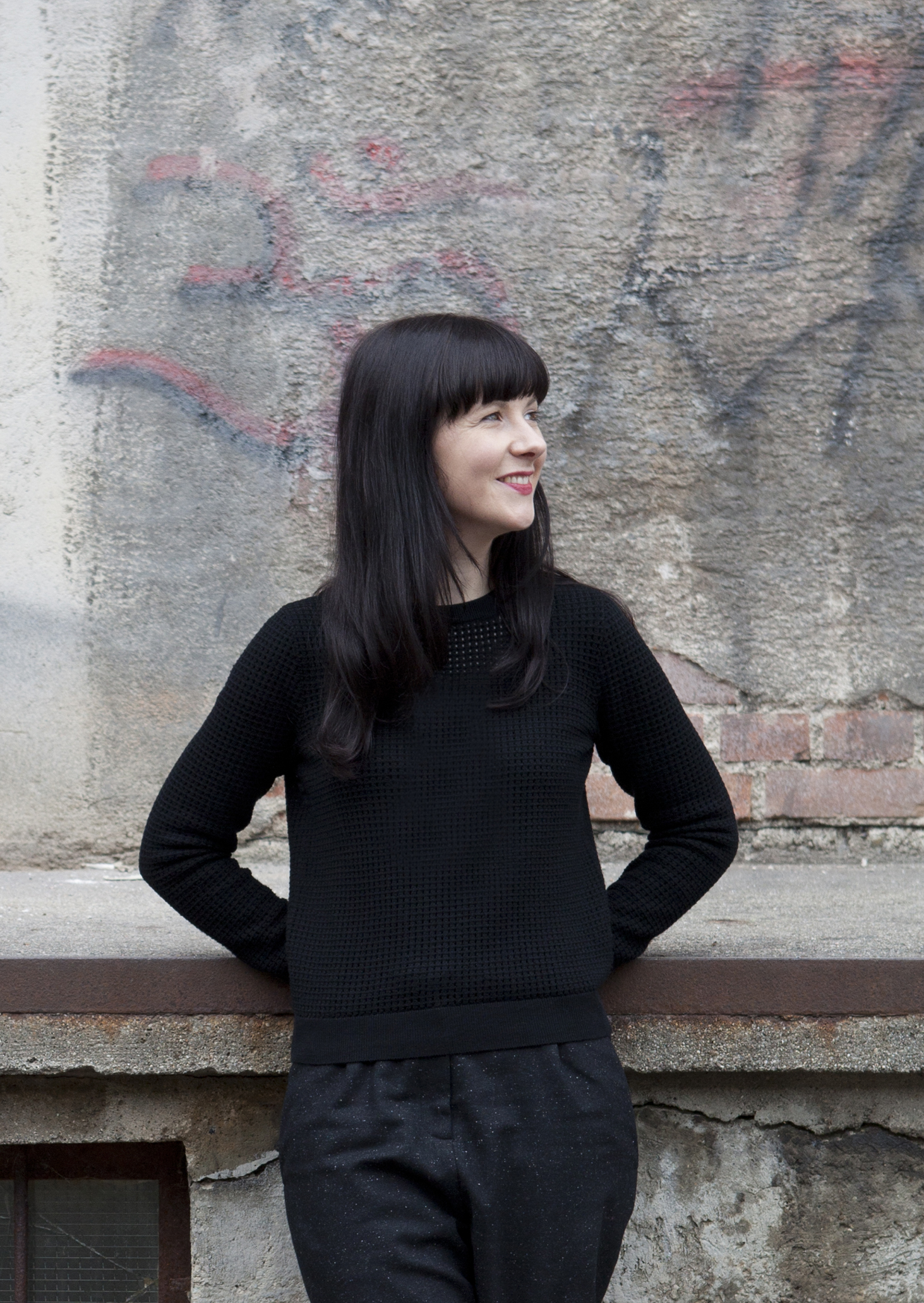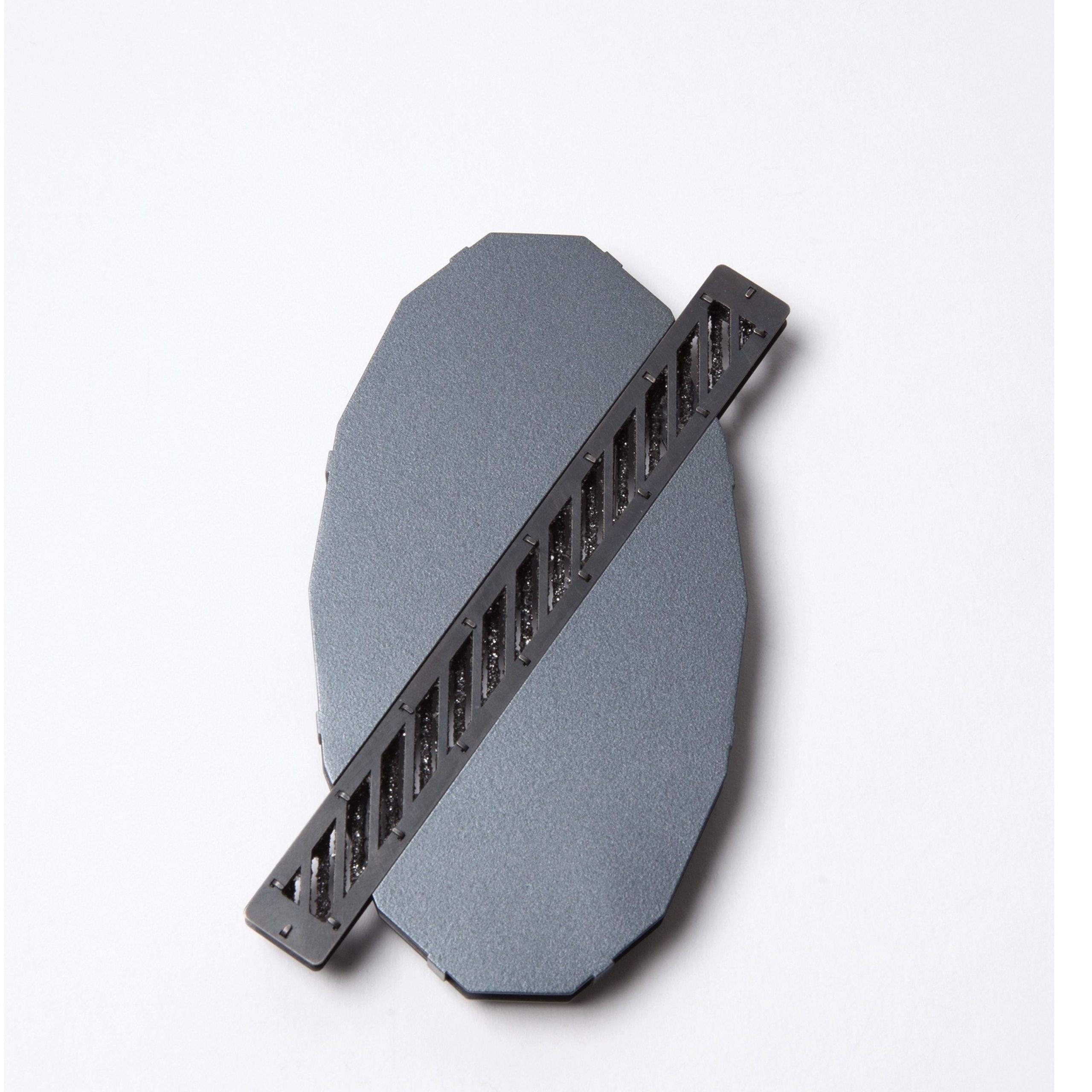Melanie Isverding

German jeweler Melanie Isverding makes large but airy structural forms—often with mechanical/industrial references. They are solid yet ephemeral, elusive but emotive, inviting us to look beyond the façade. Although based in geometry the works imply softness, approachability, humanity. Each brooch and necklace is meticulously crafted, the myriad parts admirably connected, with the back as resolved as the front. Isverding’s jewels are regular but not robotic; architectural yet not enclosed. Some are kinetic, others stationary; some are monochromatic, others embrace color. The jewelry is classic, nonetheless futuristic, connoting spacesuit regalia, yet equally recalling artifacts from antiquity, medieval chains of office, or Victorian chatelaines. They speak of traditional jewelry-making techniques and formats; however, Isverding subverts time-honored rules by darkening metal, crushing gems and pearls, or combining metal-surfaced handwoven silk with ebony and glass.
Isverding holds a graduate diploma from the Academy of Fine Arts, Munich (2012). She is currently a Professor in the Department for Metal Design (Jewellery and Objects) at the University of Applied Sciences and Arts, Hildesheim. From 2014-2019 Isverding was the assistant to Jewellery Department chairmen Daniel Kruger and Hans Stofer, respectively, at the Burg Giebichenstein University of Art and Design, Halle. She is the recipient of several awards, including the Danner Award, Munich (2017); European Prize for Applied Arts/WCC-BF Mons, Belgium (2018); the prestigious Bavarian State Prize (2019); and the Herbert Hofmann Prize (2020). She has participated in many international solo and group exhibitions, including Schmuck, Munich (2018 and 2019). Isverding’s work is represented in several important public collections, including the CODA Museum, Apeldoorn and Marzee Collection, Nijmegen, both in the Netherlands; Collection Danner-Siftung, Die Neue Sammlung (The Design Museum), Munich; and the Cooper-Hewitt, Smithsonian Design Museum, New York.

